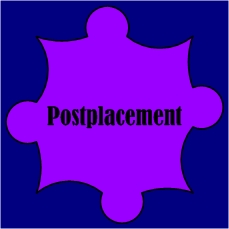Citizenship in Limbo for Adopted Indian Man

“Santosh Lakkaraju lost his father and mother on the same day.
His father, Vikramadithya Lakkaraju, died in a car accident in Guntur, India on Nov. 25, 1998. Later that day, his mother, Venumadhavi Lakkaraju, suffered heart failure and died in her sleep, leaving 12-year-old Santosh without parents.
Lakkarju went to live with his grandfather, who soon became too old and frail to care for him.
In 1999, his aunt Jyothirmayi Lakkaraju-Kidambi and her husband, Krishna Kidambi, a U.S. citizen, gained legal guardianship over Lakkaraju in India, obtained an adoption visa from U.S. Citizenship and Immigration Services, completed a home study for adoption and brought him to California as a legal permanent resident on April 30, 2001.
Lakkaraju’s new parents figured they had followed all the necessary steps for him to eventually become a naturalized U.S. citizen.
But they unwittingly had not, and his ability to stay in the U.S. might hang in the balance as a result.
Lakkaraju, 32, of Salt Lake City, learned as he sought citizenship in 2015 that his adoptive family misunderstood the adoption and immigration requirements and failed to get a court decree to legalize his adoption in California, which would have established his right to become a U.S. citizen.
His parents filed an adoption petition in California that the court granted in September 2017 and made retroactive to April 30, 2001, the day he entered the U.S.
Believing he was a U.S. citizen, Lakkaraju applied to the State Department for a U.S. passport in October 2017. The government refused to recognize the retroactive adoption, concluding “it does not appear that you acquired United States citizenship because you were adopted by your United States citizen parents after your 18th birthday.”
Lakkaraju, a married college graduate with a master’s degree, sued the State Department in federal court in Salt Lake City this month asking a judge to declare him a U.S. citizen who automatically gained citizenship through his adoption and is therefore entitled to a passport.
“This denial casts doubt on plaintiff’s right to remain in the United States, his ability to travel freely, and his ability to enjoy all of the benefits granted to citizens of the United States,” according the lawsuit.
Maria Windham, Lakkaraju’s attorney, said at issue is whether the State Department can override a state court order formalizing a legal adoption.
That, she said, runs contrary to a 4th Circuit Court of Appeals in Virginia ruling that found a child is adopted on the date that a state court rules it effective, regardless of the date on which it happened.
“If a state court says an adoption occurred, and that an adoption occurred on a certain date, the federal government shouldn’t be questioning the state court’s judgment as to when an adoption was effective,” Windham said. “If it meets state court requirements, that should be the end of the story.”
Windham said it appears the State Department, in denying Lakkaraju a passport, appears to be applying a blanket policy — which the 4th Circuit said was inappropriate — instead of looking at the case on its own.
“We think that may be a legal error rather than government playing hardball on a specific case,” she said.
Adoption is important enough that a court can consider certain procedural errors immaterial, she said.
Windham said she hopes the State Department changes its mind in Lakkaraju’s case and that litigation won’t be necessary.
“Citizenship is such a fundamental right,” she said. “It impacts everything about your life if you’re living here in the United States, whether you’re a citizen or not.”
Citizenship in limbo for Utah man after feds refuse to recognize adoption
[Deseret News 4/29/19 by Dennis Romboy]
REFORM Puzzle Piece


Recent Comments